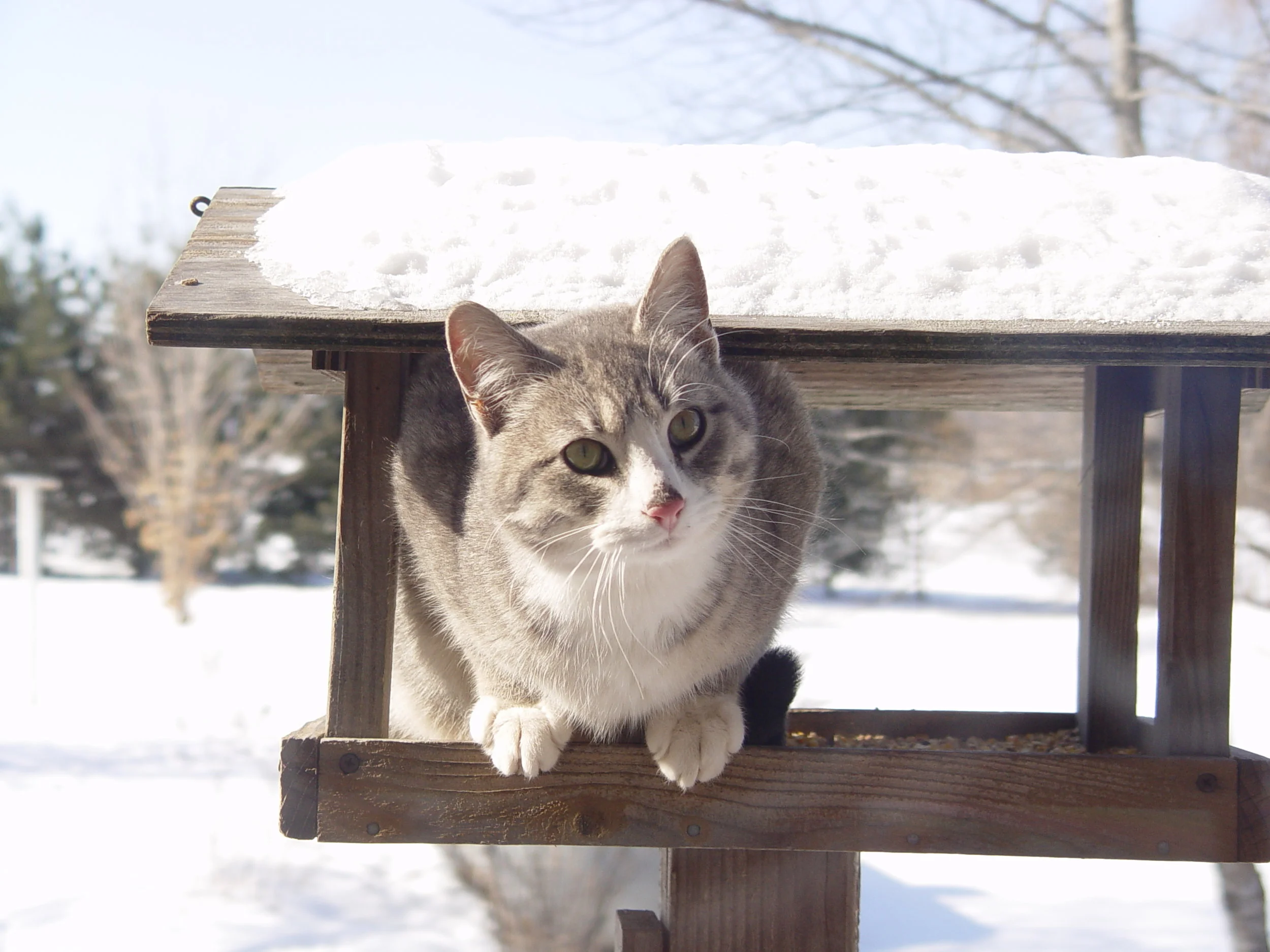Well there doesn’t seem to be a lot of snow on the ground right now, but for those of us in Ann Arbor and Chelsea, Michigan, that usually just means the snow will stay on the ground further into 2019. That means that as pet owners, we and our pets are going to have to adapt a little bit. As temperatures and snow begin to drop, cat owners in southeast Michigan should take extra caution in thinking about caring for your cat in the winter. Luckily, our team of experts at Wags to Wiskers Pet Supplies has put together some easy tips and things to look out for this winter!
Frostbite
If your cat likes to spend a lot of time outdoors, they are probably used to looking after and taking care of themselves. Nonetheless, we’ve heard of experiences where pets get snowed out or locked out in the cold, and even a little bit too much time in too cold of weather than have horrible effects on our pets. Cats can get frostbitten in extreme temperatures. How to look out for it? Frostbite appears gray or pale in color and usually affects the tips of their ears first, followed by the tail and feet (especially their cute little toes). How to prevent it? Keep in mind how long your cats are outside for and make sure that when they come in they don’t have snow or ice matted to their fur. If you think the worst has happened, immediately go to the vet!
Hypothermia
Hypothermia is a scary prospect regardless of whether you’re a human or a cat. Despite your best efforts, your cat can get hypothermia, and for cats that are unused to being outside for prolonged periods of time, this can onset quicker and have worse effects. Some symptoms to watch out for:
Shivering
Weakness
Lack of mental awareness or ability to concentrate
Short and shallow breathing
Stiffness and achiness
Low blood pressure
In severe cases, difficulty breathing and semi-comatose states
The means of prevention of hypothermia are relatively similar to preventing frostbite as written above. Monitor how long your cats are outside and ensure that they are properly cared for when they return. Don’t forget about them! That would not be a good way to care for your cat in the winter. If you suspect your cat has hypothermia, our team at Wags to Wiskers Pet Supplies once again recommends that you visit your veterinarian immediately.
Antifreeze
The sweet taste and smell of antifreeze unfortunately makes for an enticing temptation for cats. In order to best care for your cat in the winter, ensure that your stores of antifreeze are kept well out of reach of the cat, or better yet locked away. As we’re sure you know, cats can wiggle their way into tight spaces, especially in search of something sweet. Make sure that any spills, drips, and puddles are cleaned up immediately and not left out to be found. Road gritting and anti-icing solutions that are often laid on pavements can potentially be toxic as well. It’s extra important to wipe your cats paws when they come in from the outside to remove any residue. Even big salt crystals can cause discomfort, sores, or even cuts. In the case of this, be sure to clean any open wounds and if necessary contact your veterinarian for an extreme case.
Cat Coats & Heated Water Bowls
Depending on the breed of cat, your cat may be able to withstand winter without a coat. Persian and Norwegian Forest cats in particular have a luscious, thick fur that helps protect them from the cold and are an effective means of caring for themselves during the winter. However, cats with short hair such as Siamese and Minx have short fur that doesn’t help them so much.
At Wags to Wiskers Pet Supplies in both Ann Arbor (2425 W. Stadium Blvd, Ann Arbor, MI, 48103) and Chelsea (1192 S. Main St, Chelsea, MI, 48118) we can help you out if you choose to invest in a cat coat. Bring your fur family in and we’ll make sure they get a cute coat that fits them well and, most importantly, gets the job done of keeping them warm. We’ll be happy to help you out!
Similarly, if you leave water or food out for your outdoor cat, consider buying a heating pad or a heated water bowl to ensure that these items don’t get covered in snow or ice over. Ask your sales associate at Wags on where to find them in our stores!
Caring for your Cat in the Winter
Effective cat care really dictates that you should keep your cat indoors more than outdoors during the winter. Even outdoor cats are generally unsuited to extreme winter weather like we so often get here in southeast Michigan. If your cat still insists on going outside, make sure their entrance into the house stays accessible and not snowed in or iced shut so they can come and go freely. Consider buying additional items to prevent hypothermia and frostbite such as a cat coat or heated items. Our team at Wags to Wiskers Pet Supplies would be more than happy to help you!


